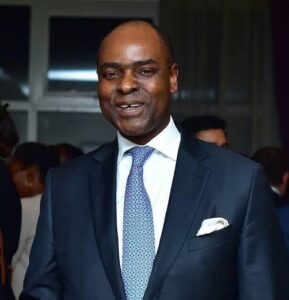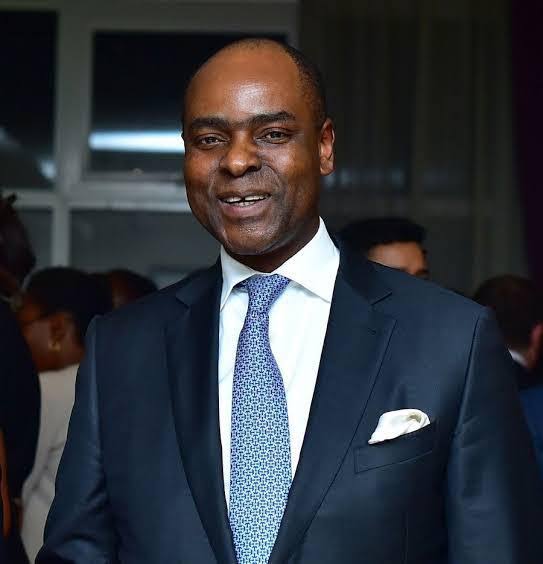Bolaji Balogun is a prominent figure in Nigeria’s business landscape, known for his significant contributions to the telecoms and financial sectors. As the CEO of Chapel Hill Denham, an independent investment banking firm, and the Chief Investment Officer of the Nigeria Infrastructure Debt Fund (NIDF), Balogun has played a crucial role in shaping the country’s economic development.

With over 30 years of experience in investment banking, investment management, and telecommunications, Balogun has built a reputation as a leading expert in his fields. His journey started with him often being recognized as the son of Subomi Balogun, the founder of First City Monument Bank (FCMB). However, over time, Bolaji carved out his own path, making a name for himself through his achievements and leadership.
Balogun’s educational journey began at Igbobi College in Lagos. He then attended Charterhouse School in Godalming, Surrey, in the United Kingdom. Afterward, he went on to study at the London School of Economics and Political Science, University of London, where he earned an honors degree in Economics.
His career in finance began in April 1993 at CSL Stockbrokers Limited, where he served as the Executive Director and Chief Operating Officer. In January 1996, he became an Executive Director at FCMB Capital Markets. After over a decade with the FCMB Group, Balogun co-founded Econet Wireless Nigeria (now Airtel Nigeria) in January 2001.
At Econet, Balogun was a key figure in the company’s growth. He led the effort to raise capital and manage the license bid for the company’s $285 million GSM license. As the Chief Business Development and Strategy Officer, and later as Chief Marketing Officer, Balogun played a pivotal role in the $1.67 billion sale of Econet Wireless to Celtel in 2005. This transaction remains Nigeria’s largest successful private investment exit to date.
Following this achievement, Balogun returned to the world of finance and established Chapel Hill Denham in 2005. Under his leadership, the firm has become a driving force in developing Nigeria’s capital markets, particularly in sectors such as infrastructure, healthcare, and power.
One of Balogun’s most notable contributions is through the Nigeria Infrastructure Debt Fund (NIDF). The NIDF is the first and only infrastructure debt fund in Nigeria, dedicated to raising long-term capital to address the country’s infrastructure needs. The fund focuses on critical areas like transportation, energy, and urban infrastructure, which are essential for Nigeria’s economic growth.
Beyond his professional achievements, Balogun is a strong advocate for aligning private sector initiatives with global development goals. As Co-Chair of the Private Sector Advisory Group on the Sustainable Development Goals (SDGs), he actively promotes sustainable and inclusive growth in Nigeria. He believes in using investment as a tool for long-term societal impact.
Balogun is also passionate about nurturing the next generation of business leaders. As Vice Chairman of Endeavor Nigeria, he supports high-impact entrepreneurs who are driving innovation and economic growth. His work with Endeavor shows his dedication to fostering leadership and entrepreneurship in Nigeria.
In addition to his role at Chapel Hill Denham, Balogun holds several other leadership positions. He is a Director of Trustfund Pensions, one of Nigeria’s largest pension fund managers, and has served as Chairman of Lafarge Africa Plc and Nahco FTZ Limited. He is also a Director at Nahco Aviance Plc and NASD Plc. Internationally, his expertise is recognized as he was appointed to the Johannesburg Stock Exchange’s Africa Advisory Board in 2009. In January 2024, he was named Co-Chair of the Abia Global Economic Advisory Council (AGEAC).
Throughout his career, Balogun has received numerous awards and recognitions for his contributions to Nigeria’s financial and telecoms sectors. He is often praised for his leadership style, which combines traditional business practices with a forward-thinking vision.
Bolaji Balogun’s influence in Nigeria’s telecom and financial sectors is undeniable. Through his various roles and initiatives, he has contributed significantly to the country’s economic development, infrastructure growth, and entrepreneurial landscape. His commitment to aligning business with sustainable development goals and fostering new talent positions him as a key player in shaping Nigeria’s future.




